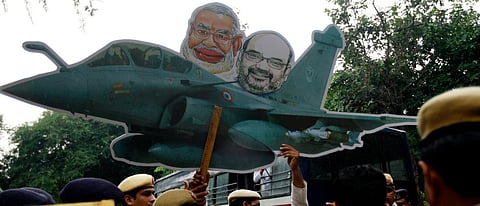A political protest against Rafale deal by the Indian National Congress and other members of the Opposition | Photo credit: Getty
Nitya Chakraborty is a veteran journalist and the editor-in-chief of India Press Agency.
Published on:
Loading content, please wait...

